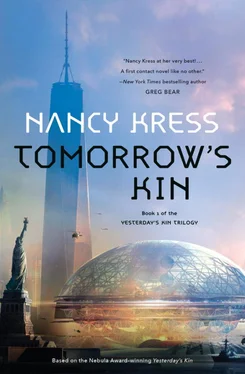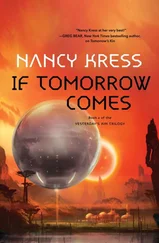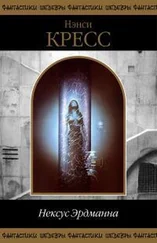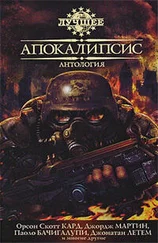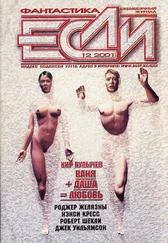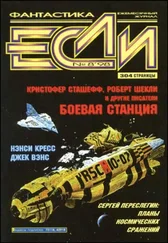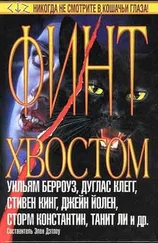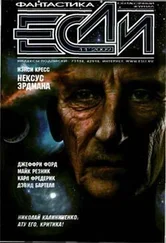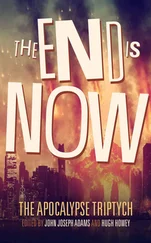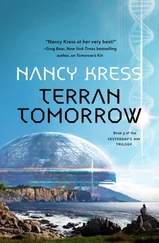Max sat at the computer, crunching data. Gina looked up from her bench. “Marianne—we found two more L7 donors.”
“Good,” Marianne said, went through the lab to her tiny office behind, and closed the door firmly. What did it matter how many L7s she found for Smith? Earth was finished. Eight and a half months left, and the finest medical and scientific brains on the planet had not even begun to find any way to mitigate the horror to come.
Gina knocked on the office door. “Marianne? Are you all right?”
Gina was the same age as Elizabeth, a young woman with her whole life still ahead of her. If she got that life. Meanwhile, there was no point in making the present even worse. Marianne forced cheerfulness into her voice. “Yes, fine. I’ll be right out. Put on a fresh pot of coffee, would you please?”
S minus 7.5 months
Noah stood with his clan and prepared to lllathil.
There was no word for it in English. Part dance, part religious ceremony, part frat kegger, and it went on for two days. Ten L7s stood in a circle, all in various stages of drunkenness. When the weird, atonal music (but after two months aboard the Embassy it no longer sounded weird or atonal to his ears) began, they weaved in and out, making precise figures on the floor with the red paint on their feet. Once the figures had been sacred, part of a primitive religion that had faded with the rapid growth of science nurtured by their planet’s lush and easy environment. The ritual remained. It affirmed family, always matrilineal on World. It affirmed connection, obligation, identity. Whenever the larger of World’s moons was lined up in a certain way with the smaller, Worlders came together with their families and joyously made lllathil. Circles always held ten, and as many circles were made as a family needed. It didn’t matter where you were on World, or what you were doing, when lllathil came, you were there.
His mother would never have understood.
The third morning, after everyone had slept off the celebration, came the second part of lllathil, which Marianne would have understood even less. Each person gave away one-fifth of everything he had earned or made since the last lllathil. He gave it, this “thumb” as it was jokingly called, to someone in his circle. Different clans gave different percentages and handled that in different ways, but some version of the custom held over mostly monocultural World. The Denebs were a sophisticated race; such a gift involved transfers of the Terran equivalent of bank accounts, stock holdings, real estate. The Denebs were also human, and so sometimes the gift was made grudgingly, or with anger at a cousin’s laziness, or resignedly, or with cheating. But it was made, and there wasn’t very much cheating. Or so said Mee^hao¡, formerly known to Noah as Smith, who’d told him so in the trilling and clicking language that Noah was trying so hard to master. A rising inflection in the middle, a click at the end. “We teach our children very intensively to follow our ways,” Mee^hao¡ said wryly. “Of course, some do not. Some always are different.”
“You said it, brother,” Noah said, in English, to Mee^hao¡’s total incomprehension.
Noah loved lllathil. He had very little—nothing, really—to give, but his net gain was not the reason he loved it. Nor was that the reason he studied World for hours every day, aided by his natural ear for languages. Once, in his brief and abortive attempt at college, Noah had heard a famous poet say that factual truth and emotional truth were not the same. “You have to understand with your belly,” she’d said.
He did. For the first time in his life, he did.
His feet made a mistake, leaving a red toe print on the floor in the wrong place. No one chided him. Cliclimi, her old face wrinkling into crevasses and hills and dales, a whole topography of kinship, just laughed at him and reached out her skinny arm to fondly touch his.
Noah, not like that. Color in the lines!
Noah, this isn’t the report card I expect of you.
Noah, you can’t come with me and my friends! You’re too little!
Noah, can’t you do anything right?
When he’d danced until he could no longer stand (Cliclimi was still going at it, but she hadn’t drunk as much as Noah had), he dropped onto a large cushion beside Jones, whose real name he still couldn’t pronounce. It had more trills than most, and a strange tongue sound he could not reproduce at all. She was flushed, her hair unbound from its usual tight arrangement. Smaller than he was but stockier, her caramel-colored flesh glowed with exertion. The hair, rich dark brown, glinted in the rosy light. Her red tunic—everybody wore red for lllathil—had hiked high on her thighs.
Noah heard his mother’s voice say, “A hundred fifty thousand years is not enough time for a species to diverge.” To his horror, he felt himself blush.
She didn’t notice, or else she took it as warmth from the dancing. She said, “Do you have trouble with our gravity?”
Proud of himself that he understood the words, he said, “No. It small amount big of Earth.” At least, he hoped that’s what he’d said.
Apparently it was. She smiled and said something he didn’t understand. She stretched luxuriously, and the tunic rode up another two inches.
What were the kinship taboos on sex? What were any of the taboos on sex? Not that Noah could have touched her skin-to-skin, anyway. He was encased, so unobtrusively that he usually forgot it was there, in the “energy suit” that protected him from alien microbes.
Microbes. Spores. How much time was left before the cloud hit Earth? At the moment it didn’t seem important. ( Noah, you can’t just pretend problems don’t exist! That had usually been Elizabeth.)
He said, “Can—yes, no?—make my”—damn it, what was the word for microbes?—“my inside like you? My inside spores?”
S minus 6.5 months
Gina had not returned from Brooklyn on the day’s last submarine run. Marianne was redoing an entire batch of DNA amplification that had somehow become contaminated. Evan picked up the mail sack and the news dispatches. When he came into the lab, where Marianne was cursing at a row of beakers, he uncharacteristically put both hands on her shoulders. She looked at his face.
“What is it? Tell me quickly.”
“Gina is dead.”
She put a hand onto the lab bench to steady herself. “How?”
“A mob. They were frighteningly well armed, almost a small army. End-of-the-world rioters.”
“Was Gina… did she…”
“A bullet, very quick. She didn’t suffer, Marianne. Do you want a drink? I have some rather good scotch.”
“No. Thank you, but no.”
Gina. Marianne could picture her so clearly, as if she still stood in the lab in the wrinkled white coat she always wore even though the rest of them did not. Her dark hair just touched with premature gray, her ruddy face calm. Brisk, pleasant, competent…. What else? Marianne hadn’t known Gina very well. All at once, she wondered if she knew anyone, really knew them. Two of her children baffled her: Elizabeth’s endemic anger, Noah’s drifty aimlessness. Had she ever known Kyle, the man he was under the charming and lying surface, under the alcoholism? Evan’s personal life was kept personal, and she’d assumed it was his British reticence, but maybe she knew so little about him because of her limitations, not his. With nearly everyone else aboard the Embassy, as with her university department back home, she exchanged only scientific information or meaningless pleasantries. She’d had coffee a few times with Harrison Rice, but they had talked only about work. Marianne hadn’t seen her brother, to whom she’d never been close, in nearly two years. Her last close female friendship had been over a decade ago.
Читать дальше
